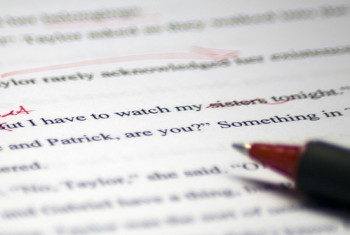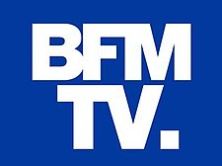
(Credit: Jenny Kaczorowskivia, Fickr)
The Concordian is reviewing all of student writer Tim Weynerowski’s work and planning to educate its staff after a recent plagiarism incident, the Quebec student newspaper’s board of directors told iMediaEthics.
As iMediaEthics has written, The Concordian published a retraction in mid-January after Canadian University Press Quebec bureau chief Kalina Laframboise discovered that a Concordian article plagiarized from her. But, CUP, a national co-operative of student newspapers, and Laframboise weren’t satisfied with the retraction because it didn’t directly apologize or label the incident plagiarism. After CUP publicized its complaints, The Concordian issued a full apology.
iMediaEthics had asked for more information about the incident and how The Concordian was handling it. Tyson Lowrie from The Concordian‘s board of directors told iMediaEthics by e-mail this week that the board is in the process of “reviewing [Weynerowski’s] work, but have not completed it.” He noted that “Weynerowski told us he welcomed such scrutiny.”
The Concordian had previously told CUP that it determined Weynerowski didn’t “deliberately plagiarize” from CUP because Weynerowski “produced supporting evidence to that effect.” The Concordian and CUP articles were both on Concordia University issuing a statement against Parti Quebecois’ proposed “charter of secularism.”
iMediaEthics asked The Concordian what that “supporting evidence” was that helped the board make the determination as to his intent. According to Lowrie, Weynerowski pointed to other news outlets’ reporting on the same topic. He wrote:
“Tim Weynerowski provided us with a dossier of several articles (written before either his or Kalina LaFramboise’s work appeared) from other major media outlets, as well as Concordia’s statement and their press release announcing their statement. His point was to demonstrate that some of the language which we was accused of lifting from Ms. LaFramboise’s work was being widely used by several other media outlets, or had come from Concordia’s statement or press release.”
While The Concordian didn’t consider Weynerowski’s story to be intentional plagiarism, they did see “issues” in his story.
Moving forward, The Concordian plans to “provide better education opportunities to our staff to avoid such issues in the future” and has asked CUP for help. CUP president Erin Hudson confirmed to iMediaEthics that it is working with The Concordian. “We’re in the process of reaching out to professionals and alumni, and gathering resources from various organizations such as Regret the Error and Poynter,” she wrote.
Lowrie added that the board of directors now wants to expand the board so it “can function more effectively.” He wrote:
“Our board consists entirely of unpaid volunteers with other serious time commitments. Such is the nature of student press, but it also means we have to find people who are able to give these tasks, as well as in general reviewing our procedures for handling and investigating allegations of plagiarism, the time and energy they require. The goal is to be able to provide support to the editorial staff of the paper so that they can get on with putting out a good editorial product.”






